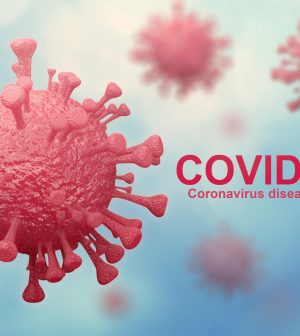- Could Artificial Sweeteners Be Aging the Brain Faster?
- Techniques for Soothing Your Nervous System
- Does the Water in Your House Smell Funny? Here’s Why
- Can a Daily Dose of Apple Cider Vinegar Actually Aid Weight Loss?
- 6 Health Beverages That Can Actually Spike Your Blood Sugar
- Treatment Options for Social Anxiety Disorder
- Understanding the Connection Between Anxiety and Depression
- How Daily Prunes Can Influence Cholesterol and Inflammation
- When to Take B12 for Better Absorption and Energy
- Epsom Salts: Health Benefits and Uses
Past History of Cancer Won’t Make You More Vulnerable to Severe COVID

If you have a history of cancer, fear not — researchers report that you aren’t at increased risk for severe COVID-19.
But the same may not be true for current cancer patients.
In the study, the researchers analyzed the electronic health records of nearly 272,000 adults diagnosed with COVID-19 between June 1, 2020, and Dec. 31, 2020, at more than 700 hospitals and 700 clinics in the United States.
Of those patients, nearly 18,500 had a history of at least one cancer diagnosis, including more than 10,400 who were diagnosed with cancer within one year before their COVID-19 infection.
“We found that recent cancer diagnoses were associated with a 17% increased risk for death and 10% increased risk for hospitalization,” said study co-lead author Youngran Kim, from McGovern Medical School at the University of Texas Health Science Center at Houston.
“However, a history of cancer more than one year before COVID-19 diagnosis was not significantly associated with increased mortality or hospitalization. Our study also confirmed other risk factors and racial disparities in COVID-19 outcomes among COVID-19 patients with cancer,” Kim said in a center news release.
While recent cancer patients were more likely to be hospitalized and to die within 30 days of COVID-19 diagnosis, they were not significantly more likely to end up in intensive care or to be put on a ventilator than patients without cancer.
Among patients with a recent cancer diagnosis, those with advanced blood, liver and lung cancers had a particularly high risk for worse COVID-19 outcomes, and those who had received radiation or chemotherapy treatments within three months before coronavirus infection also had a higher risk of death after COVID diagnosis, according to the study published May 4 in the journal PLOS ONE.
It also found that cancer patients who were older, Black, on Medicare and/or lived in the South were significantly more likely to die after COVID-19 diagnosis, and that diabetes and heart, liver, and kidney disease were also associated with an increased risk of death after infection.
“In this particular study, we not only confirmed general findings about worse COVID-19 outcomes for cancer patients, but elaborated on subgroups of cancer patients that were not overly impacted,” said study co-lead author Liang Zhu, a researcher at UTHealth Houston.
“This is an important finding for the health care system, as they intervene based on the appropriate risk assessment and for cancer survivors to understand their specific risks associated with COVID-19,” Zhu said in the release. “As the pandemic evolves, however, we may need to revisit this topic at a future time.”
More information
For more on cancer patients and COVID-19, see the U.S. National Cancer Institute.
SOURCES University of Texas Health Science Center at Houston, news release, May 4, 2022
Source: HealthDay
Copyright © 2026 HealthDay. All rights reserved.










